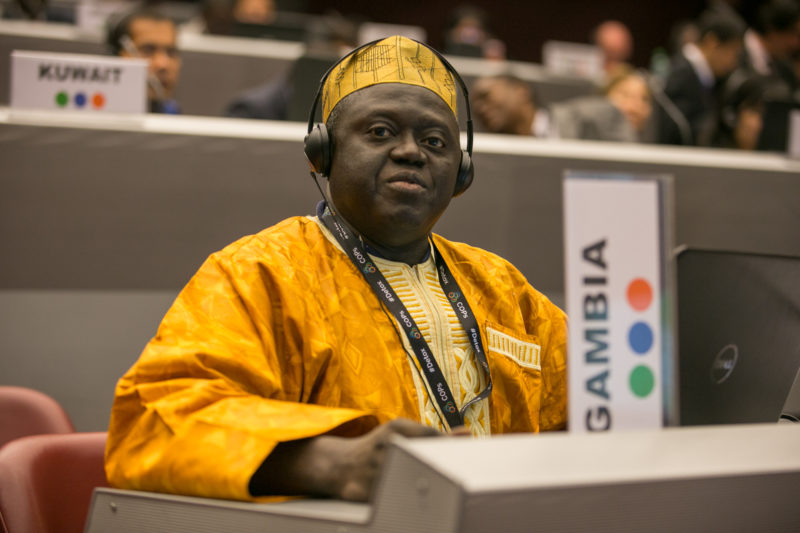The Executive Director of the National Environment Agency of The Gambia has said that protected areas play a fundamental role in the conservation of biodiversity, as well as ecosystem services, including providing services such as water, timber and food, in addition to cultural and spiritual services. But he however disclosed that protected areas are under heavy and increasing threats from anthropogenic pressures, which are now being exacerbated by climate change.

Momodou Jaama Suwareh made this submission during the opening ceremony of a two-day Strategic and Technical Workshop on the finalisation and endorsement of the Nuimi-Saloum Transboundary Management Plan recently held at the Senegambia Beach Hotel. The environment boss revealed that climate change impacts have already been observed on biodiversity and the impacts are causing shifts in the distribution of species, as well as reductions in population sizes, and even extinctions of local populations.
This means that protected areas that have been created to protect certain species or ecosystem types may not do so in the future. He, however, noted that such sites may become important for other species or ecosystems of conservation concern, and thereby play a key role in helping them to adapt to climate change.
Protected areas, he added, are also a very useful tool in mitigating climate change, by optimising carbon sequestration and storage, by preventing deforestation and forest degradation which constitute a major source of greenhouse gas emissions, and by supporting ecosystem-based adaptation for the benefit of people.
In order to design appropriate management and adaptation actions, it is crucial to gain a better understanding of the vulnerability of protected areas in the face of climate change and the suitability of the existing protected area network. According to him, between 2010 and 2015, the Gambia implemented a full-size GEF project which focused on the impacts of climate change on protected areas and the site selected for pilot activities was the trans-boundary area between Niumi National Park in The Gambia and the Delta du Saloum Park in Senegal.
The Niumi National Park was established in 1986 and covers 7,758 ha from Barra at the mouth of the River Gambia and it encompasses Jinack Island and a natural extension of the Saloum Delta National Park. Additionally, he revealed that Delta du Saloum was established in 1976 and is located in the central West of Senegal in the Sine Saloum natural region. It covers 76,000 ha and was established as a biosphere reserve in 1981 and recognised as a wetland (Ramsar site) of international importance in 1984.
Since 2008, two national parks (Niumi National Park in The Gambia and the Delta du Saloum Park in Senegal) formed a complex ecosystems classified as wetland of international importance and a protocol of agreement between The Gambia and Senegal for the trans-boundary management of protected areas, known as the Jinack Protocol, which specifically applied to the Niumi-Saloum trans-boundary site signed in 2001.
A draft trans-boundary management plan for the Niumi-Saloum complex was created in October 2010 and would have been updated as part of the PARCC project to take into account climate change aspects.
The importance of the two-day workshop, Suwareh noted, cannot be over-emphasised because it aims to facilitate collaboration between the two national parks by promoting networking, exchange of ideas and share lessons learnt, prepare key stakeholders and communities to better support the process.
Furthermore, he said, it will help the participants to complete all the steps that have been undertaken so that relevant stakeholders from Senegal and Gambia can come together review, finalise and validate the management plan for its upcoming implementation in the current and future projects and programmes.
He reiterated that bringing together these two institutions will help advance the work identified to consolidate the achievements which has already been known, and that the management plan would be focused and finalised with the help of experts and the different actors involved in the management of trans-boundary ecosystems.
He however challenged all to do justice to the working documents through a thorough review and active participation. Suwareh acknowledged the continuous partnership, financial as well as technical support from partners especially Wetlands International for the works they have been doing in the region.
By Sheikh Alkinky Sanyang
